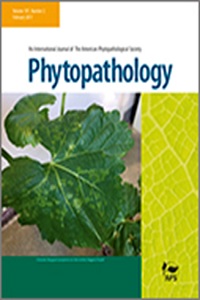Pathogenicity of a 16SrIII-L phytoplasma associated with frogskin disease of cassava (Manihot esculenta Crantz) in Colombia
Frogskin disease (FSD) is the most important constraint to cassava crop as it directly affects the production of roots, causing yield losses as high as 90% for farmers in Cauca, Colombia. The phytoplasma associated with FSD belongs to the 16SrIII-L subgroup and was isolated using an artificial culture medium kept under anaerobic conditions. In this study, our goal was to evaluate the pathogenicity of phytoplasma strains isolated from cassava diseased roots. Cassava clones CM 2952, Col 1, Col 896, Bra 184, SM 909-25, Per 334, Per 326, Per 534, and Per 1999, were evaluated. In vitro plants were grown in a greenhouse for 60 days and inoculated with phytoplasma by stem and root injection of liquid phytoplasma cells medium. Inoculated plants were maintained in an insect-proof greenhouse until root symptoms developed. The control plants were inoculated with liquid medium without phytoplasma cells. The inoculated plants were evaluated every two months. Pathogenicity was confirmed in five (CM 2952, Col 1, Col 896, Bra 184, SM 909-25) of ten genotypes exhibiting severe FSD symptoms. The phytoplasma was re-isolated in vitro from cassava symptomatic roots and identification confirmed by nested-PCR, restriction fragment length polymorphism and sequence analyses of amplified rDNA products. This study reports for the first time the pathogenicity of phytoplasma isolated on artificial culture medium originated from cassava roots

